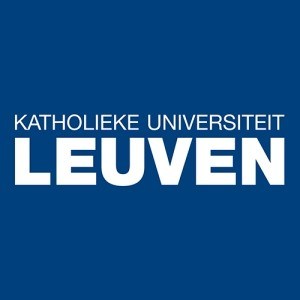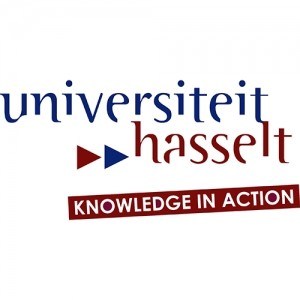Photos of university / #kuleuven
The BE Physics program at KU Leuven offers a comprehensive and rigorous education in the fundamental principles of physics, emphasizing both theoretical understanding and practical skills. This bachelor's degree is designed to equip students with a solid foundation in classical and modern physics, preparing them for diverse career opportunities in research, industry, and education. Throughout the program, students explore core areas such as mechanics, electromagnetism, thermodynamics, quantum physics, and statistical physics, ensuring a well-rounded grasp of the physical phenomena that govern our universe. The curriculum combines lectures, laboratory sessions, and project-based learning, fostering analytical thinking and problem-solving abilities. Students are also encouraged to engage in scientific research and innovation, often collaborating with leading experts in the field. KU Leuven emphasizes an international perspective, offering exchange programs and fostering multicultural learning environments. The program also provides guidance on specialized electives and advanced topics, enabling students to tailor their education according to personal interests and career ambitions. Upon completion, graduates possess the analytical skills, scientific knowledge, and technical competencies to pursue further studies in physics or to enter employment in sectors such as technology, engineering, data analysis, and education. The BE Physics program at KU Leuven stands out for its academic excellence, research opportunities, and commitment to developing highly skilled physicists who are capable of addressing complex scientific and societal challenges.
Advanced Physics Courses
Compulsory Courses
- Advanced Quantum Mechanics
- Historical and Social Aspects of Physics
- Experiments in Modern Physics
Elective Courses
- Relativity
- Advanced Solid State Physics
- Advanced Nuclear Physics
- Advanced Soft and Biomatter Physics
- Quantum Field Theory
Master's Thesis
Profile Courses
The student chooses one of the profiles below as a ‘major’ research profile. This defines the field of the master’s thesis research. The student takes at least 18 and up to 30 credits within the chosen major profile. Up to 12 credits can be chosen outside the list of profile courses, in agreement with your thesis promotor. Students that choose for the Research option can choose a second ‘minor’ profile. The minor profile amounts to at least 12 credits. If you combine this with a research internship, contact your research internship supervisor for advise on the courses. The study-advisor of your major profile is your main contact for help and for approval of your study programme.
Condensed Matter Physics
- Research Methods in Condensed Matter Physics
- Semiconductor Physics
- Electron Correlations: Superconductivity and Magnetism
- Advanced Topics in Clusters, Macromolecules and Nanoparticles
- Optical Properties of Solids
- Mesoscopic Physics
- Advanced Fluorescence and Fluorescence Microscopy. From Single Molecules to Biological Systems
- Photophysics and Photochemistry of Molecular Materials
- Physical Chemistry and Properties of Polymers
- Lasers and Laser Spectroscopy
- Physics of Beam-Solid Interactions
- Applied Rheology
- Electronic Transport
- Computational Methods in Solid State Physics
- Magnetic Resonance
- Scanning Probe Microscopy
- Biosensors and Bioelectronics
- Many Body Quantum Theory in Condensed Matter Physics
- Hyperfine Interactions
- Polymer Physics
Nuclear Physics
- Exotic Nuclei: Properties and Interactions
- Ionizing Radiation Detection Techniques
- Theoretical Nuclear Physics
- Research Methods in Nuclear Physics
- Computational Physics: Advanced Monte Carlo Methods
- Computational Physics: Molecular Dynamics Simulations
- Hyperfine Interactions
- Theory of Nucleosynthesis
- Radiation Protection
- Lasers and Laser Spectroscopy
- Physics of Beam-Solid Interactions
Theoretical Physics
- Computational Physics: Advanced Monte Carlo Methods
- Computational Physics: Molecular Dynamics Simulations
- Groups and Symmetries
- Galaxies and Cosmology
- Physical Modelling of Complex Systems
- High-Energy Astrophysics
- Analytical Mechanics
- Advanced Statistical Mechanics
- Capita Selecta in Theoretical Physics - A
- Capita Selecta in Theoretical Physics - B
- Mathematical Physics
- Electroweak and Strong Interactions
- Advanced Quantum Field Theory
- Early Universe Cosmology
- Polymer Physics
- Advanced Field Theory
Requirements
- Applicants should submit a satisfactory score on an internationally recognized test of English language proficiency: TOEFL (minimum score 94 internet-based with at least 19 for reading, 18 for Listening, 19 for speaking and 21 for writing) or IELTS (minimum score 7 overall, whilst at least 6,5 for reading, 6 for listening, 6 for speaking and 6 for writing).
- All applicants (EEA and non-EEA) will have to pay an application fee of 50 € to process their file.
- PDF scans of your diplomas and transcripts of academic records
- PDF scan of the translation of your diploma and official transcripts
- If you still have to take the test by the time you want to submit your application file, upload a proof of registration for the TOEFL or IELTS test in the meantime. The proof of registration should mention the date when you will be taking the test.
- PDF of the proof of payment of the application fee made either via bank transfer or via credit card
- PDF scan of the identity page of your passport
- PDF of your motivation letter (recommended size: one A4 page)
- PDF of your CV
The Physics programme at KU Leuven offers various financing options to support students throughout their studies. Students can benefit from government-funded grants and scholarships based on academic merit, financial need, or specific demographic criteria. The university participates in national scholarship schemes such as the Flemish Government Scholarship for International Students, which provides financial assistance to outstanding students from abroad. Additionally, KU Leuven offers its own scholarships, including the KU Leuven Master's Scholarship for international students, aimed at fostering diversity and academic excellence.
Students are encouraged to apply early and explore additional funding opportunities such as Erasmus+ exchanges, which may include mobility grants for students participating in international exchange programmes. Part-time jobs and student work placements are also common ways for Physics students to supplement their income while gaining valuable experience. The university's Career Service provides resources and counselling to help students find suitable part-time employment.
Furthermore, some students may qualify for bank loans or educational financing from private financial institutions, although these options should be considered carefully due to repayment obligations. The university's Financial Aid Office provides detailed guidance on available grants, scholarship applications, and financial planning for students enrolled in the Physics programme. Students are advised to check the specific eligibility criteria and deadlines to maximize their chances of securing financial support.
In conclusion, KU Leuven's Physics programme is supported by a comprehensive framework of financial resources designed to enable students to pursue their academic goals with reduced economic barriers. It is recommended that prospective students regularly consult the university’s official website and contact the Financial Aid Office for the most up-to-date information and personalized assistance related to financing their studies at KU Leuven.
The Physics program at KU Leuven offers a comprehensive and in-depth education in the fundamental principles and applications of physics. The programme is designed to provide students with a strong foundation in classical and modern physics, including mechanics, electromagnetism, thermodynamics, quantum physics, and statistical physics. It combines theoretical knowledge with practical laboratory skills, fostering a deep understanding of physical phenomena and their mathematical descriptions.
Students enrolled in this program have access to state-of-the-art laboratories and research facilities, enabling hands-on experience in experimental physics, instrumentation, and data analysis. The curriculum is periodically updated to include recent advances in physics, such as condensed matter physics, nanotechnology, and astrophysics, reflecting KU Leuven's commitment to cutting-edge research. During the course of their studies, students undertake various projects, seminars, and internships, which enhance their problem-solving abilities and prepare them for diverse careers in academia, industry, and research institutions.
The program also emphasizes critical thinking, scientific communication, and teamwork skills, which are essential for a successful career in science. KU Leuven supports international mobility, and students are encouraged to participate in exchange programs and collaborative research initiatives with partner universities worldwide. Graduates of the physics programme are well-equipped to pursue advanced master's degrees and doctoral studies, or to directly enter the workforce in roles related to research, technology development, and consultancy.
The faculty members involved in the physics programme are renowned researchers in their fields, contributing to various scientific discoveries and innovations. Academic advising and student support services are available to ensure that students receive personalized guidance throughout their studies. Overall, the Physics program at KU Leuven is designed to produce well-rounded, highly skilled physicists capable of addressing contemporary scientific challenges and contributing to technological progress.



